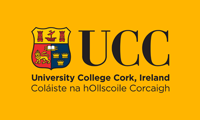News
Food for Thought: Feeding microbes to deal with stress

Dealing with stress through your dinner plate maybe an effective approach according to new research from APC Microbiome Ireland at University College Cork (UCC), Ireland. The concept that “we are what we eat” goes back millennia but now the Cork researchers led by Prof. John Cryan have shown that by changing diet for just four weeks this adage can be extended to influencing perceived stress levels.
Dealing with stress through your dinner plate maybe an effective approach according to new research from APC Microbiome Ireland at University College Cork (UCC), Ireland. The concept that “we are what we eat” goes back millennia but now the Cork researchers led by Prof. John Cryan have shown that by changing diet for just four weeks this adage can be extended to influencing perceived stress levels.
Although the microbiome (the trillions of bacteria in the gut) has been linked to stress and behaviour previously it was unclear if by feeding these microbes demonstratable effects could be seen. To address this Dr. Kirsten Berding a nutritionist and Irish Research Council Postdoctoral Fellow in the joint laboratory of neuroscientist Prof Cryan and Psychiatrist Prof Ted Dinan designed a diet to increase foods high in prebiotic and fermented foods. They called this a ‘psychobiotic’ diet to expand the term Profs Cryan and Dinan first coined in 2013 to refer to microbiota targeted interventions that support mental health. Even though, the last decade has seen an increase in attention on the impact of diet on the microbiota composition and the role of diet in supporting optimal mental health there has been a dearth of studies closing the triangle between them. Moreover, there has been a lack of studies investigating whole-diet approaches to modulate stress and the mechanisms that underpin such effects.
Thus, to test this, 45 healthy individuals with relatively low fibre diets at baseline were recruited largely from the University student population. The dietary intervention consisted of an individual education session at baseline and halfway through the four week period facilitated by a registered dietitian. Participants were educated on the components of the study diet, which included consumption of fruits and vegetables high in prebiotic fibers (6–8 servings per day, e.g., onions, leeks, cabbage, apples, bananas, oats), grains (5–8 servings per day) and legumes (3–4 servings/week) as well as fermented foods (2–3 servings per day, e.g., sauerkraut, kefir or Kombucha). Those on the control diet just received general dietary advice according to the food pyramid.
Intriguingly, intervention with the psychobiotic diet resulted in reductions of perceived stress with higher adherence to the diet resulted in stronger decreases in perceived stress. The quality of sleep improved in both groups. While the dietary intervention elicited only subtle changes in microbial composition and function, significant changes in the level of 40 chemicals were observed. Lastly, microbial stability was linked to greater changes in perceived stress scores in those on the psychobiotic diet. These results highlight that dietary approaches can be used to reduce perceived stress in a human population.
“Feed your microbes to deal with stress: a psychobiotic diet impacts microbial stability and perceived stress in a healthy adult population” is published by Molecular Psychiatry, a peer-reviewed scientific journal published by Nature Publishing Group. It is available to read online here: https://doi.org/10.1038/s41380-022-01817-y
This story has been covered in the media by the Irish Independent


